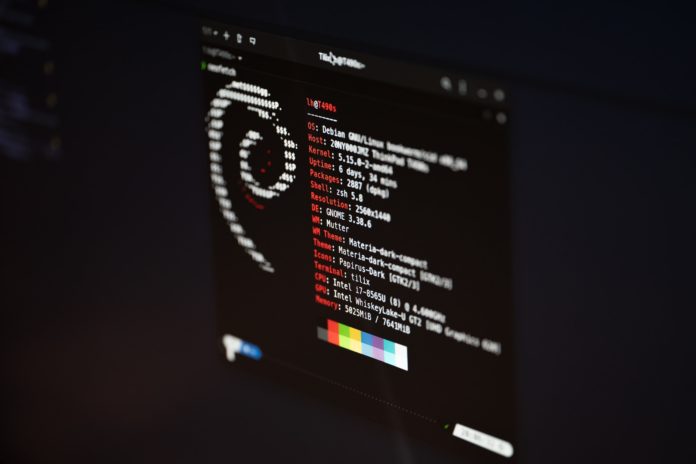Proxies, in their various forms, serve as vital intermediaries between your network and the websites or services you access. When it comes to choosing the right proxy for your needs, considerations such as privacy, anonymity, speed and connection stability come into play. If you’re using Linux or Unix systems, you have the advantage of flexibility and compatibility with a wide range of proxy options. For privacy-conscious users or those engaged in data collection, proxies like residential proxies can provide a more authentic and anonymous browsing experience.
On the other hand, if your focus is on optimizing speed and connection performance, dedicated datacenter proxies are often the preferred choice. Linux and Unix users can easily configure and manage these proxies, leveraging the operating system’s robust networking capabilities. By understanding the unique advantages that Linux or Unix can offer in terms of proxy compatibility, you can choose the most suitable proxy type for your specific use case, whether it’s privacy-oriented tasks, high-speed activities like gaming or automation tasks. We look at the difference between residential and dedicated datacenter proxies, like the options Smartproxy offers.
The Popular Choice for Proxy Deployment on Linux
One of the most commonly found proxies combined with Linux is Squid Proxy Server. Squid is a widely used open-source proxy server that runs on various Unix-like operating systems, including Linux. It provides features such as caching, access control, authentication and content filtering. Squid is known for its stability, performance and extensive configuration options, making it a popular choice for both small-scale and large-scale deployments. It can be used as a forward proxy, reverse proxy, or a transparent proxy, making it versatile and adaptable to different networking scenarios.
Residential Proxies
Residential proxies use the IP address of actual home devices. As such, it looks like a more genuine connection than datacenter proxies. Internet Service Providers (ISP) assign the IP addresses, and as such, it’s a more authentic option when connecting to the internet.
Rotating IPs
Rotating proxies are a type of residential proxy server, as it also uses the IP addresses of home devices. However, unlike the standard option, this one uses a massive pool of IP addresses and assigns a new address with each connection. You can also get rotating proxies that keep the same IP address for a set period, like one, 10, or 30 minutes, before changing to a new one.
Datacenter Proxies
There are several types of datacenter proxies, and these servers use a data center proxy pool to assign a random IP address. The addresses can also belong to third-party cloud service providers. This option isn’t as authentic as residential ones, but offers a cheaper alternative that tends to be faster than residential proxies. There are two types of datacenter proxies, and it depends on the number of users who share the IP address to which category it falls.
Shared Proxy
A shared option means that multiple people use this IP address, and it’s one of the most cost-effective options. The shared proxy pool will assign you a random IP address (which is also used by others) and help you access information in another country. However, since clients use the same bandwidth with the shared servers, it can mean slower connections and transfer speeds.
Dedicated Proxy
Dedicated datacenter proxies have all of the benefits the shared ones have with none of the drawbacks. It’s a server solely for your use and, as such, won’t become burdened by other requests. You have full access and management rights for the dedicated IP address and will experience better performance and stable speed. These proxy servers are an excellent option for finding a more affordable, yet secure, solution.
Main Differences
We briefly examined some differences between residential and datacenter proxy servers, but let’s dive into the most significant differences.
Anonymity Level
Both options hide your IP address and allow you to access various sites anonymously. However, datacenter proxies don’t use actual devices, as the IP pool is generated by a data center and, as such, is less anonymous than the residential ones.
ISPs can better identify when you use a datacenter IP address, and there’s more chance of them discovering your location. However, that’s why you look to dedicated, more secure, and anonymous options than shared ones.
IP Address Source
This difference is the crux between the two options. Residential ones get their IP addresses from ISP, while datacenter ones get them from cloud servers and data center pools. Datacenter IP addresses are also static, while residential ones can be static or rotating depending on the type chosen.
Speed
Regarding speed, the datacenter wins over residential, as the cloud server’s remote service allows a faster connection. Dedicated datacenter proxies are even faster, as it doesn’t have the other requests from separate users to slow down their connection.
Cost
Residential ones are the most expensive option, as you pay for more anonymity and extensive features. If it’s a non-static one, meaning a rotating proxy, you pay more, as you have access to millions of IP addresses and a tool that assigns new addresses with each connection or sticky session.
Uses
Both Linux and Unix offer a wide range of applications and benefits. Residential proxies, in particular, are well-suited for tasks such as web scraping, social media platform management and review monitoring. They are especially useful for comparing competitor prices and aggregating travel fares. Moreover, residential proxies aid in enhancing brand protection by enabling the identification of fraudulent users and other security measures.
On the other hand, datacenter proxies have their advantages, particularly when it comes to accessing geo-restricted content. By utilizing an IP address from a datacenter pool, you can circumvent blocks imposed by relevant sites, although there is a possibility that the connection may be recognized as proxy usage at a later stage. Datacenter proxies are also highly beneficial for ad verification, management and SEO monitoring.
Which is Better?
At the end of the day, when considering the choice between residential and dedicated datacenter proxies, it’s worth noting that the operating system you’re using can also play a role. If you are utilizing Linux or Unix-based systems, compatibility with proxy servers should not be a concern. Both residential and datacenter proxies can be configured to work seamlessly with these operating systems, allowing you to leverage their features and benefits.
Whether you prioritize the authenticity and anonymity provided by residential proxies or the faster speeds and affordability of dedicated datacenter proxies, it’s important to assess your specific needs and requirements. By considering how you plan to use the proxies and factoring in the unique capabilities of Linux or Unix, you can make an informed decision that aligns with your purposes and ensures optimal performance.






